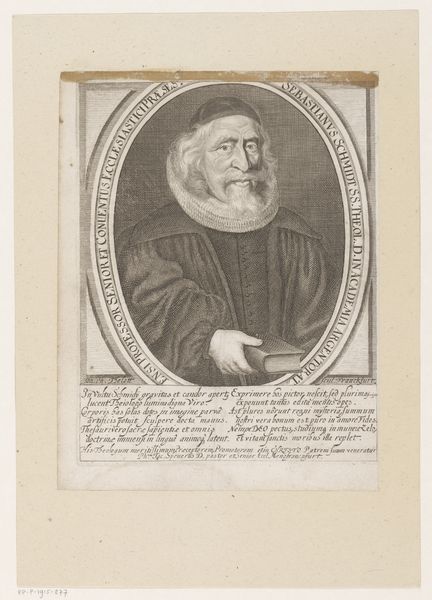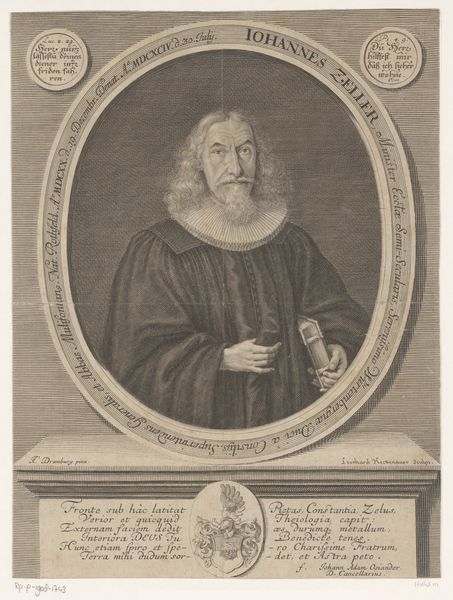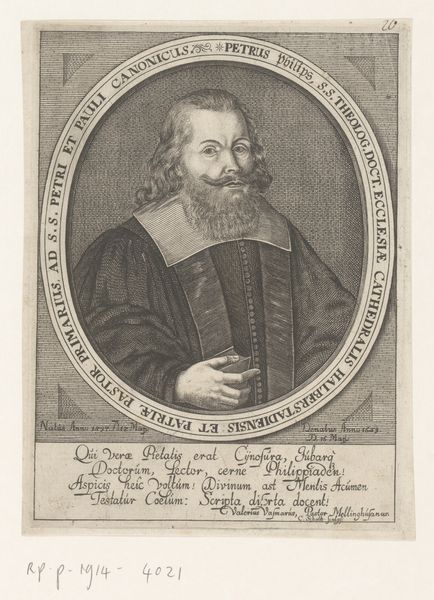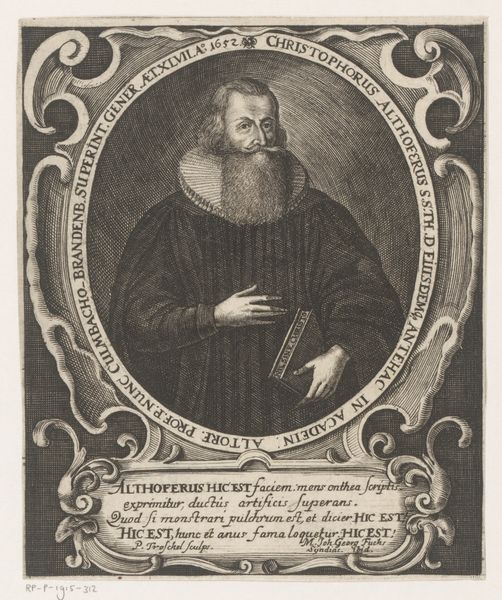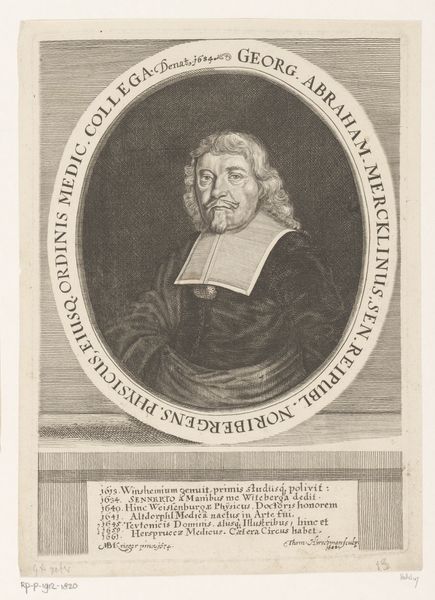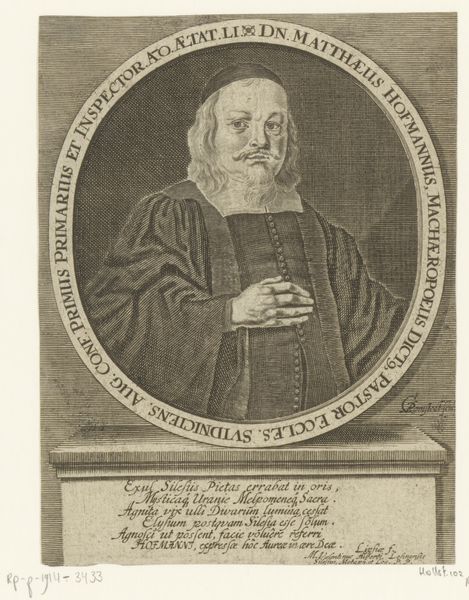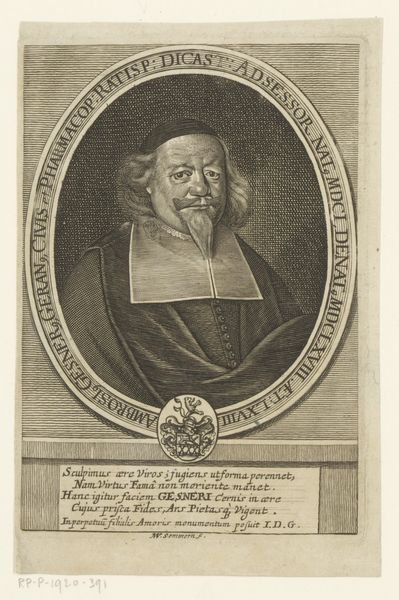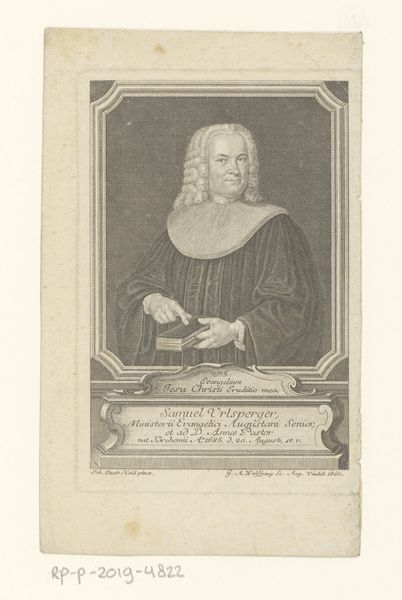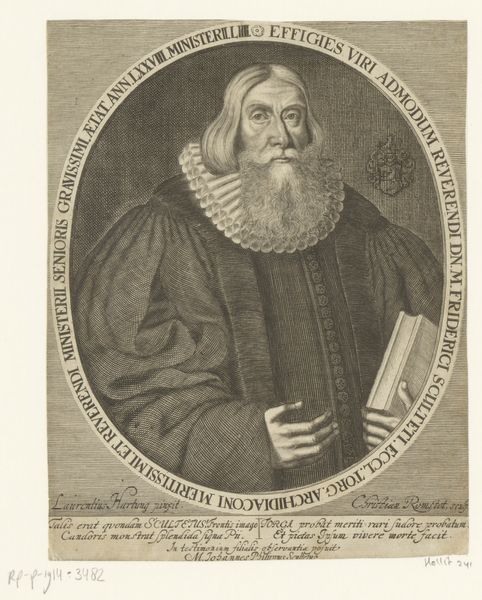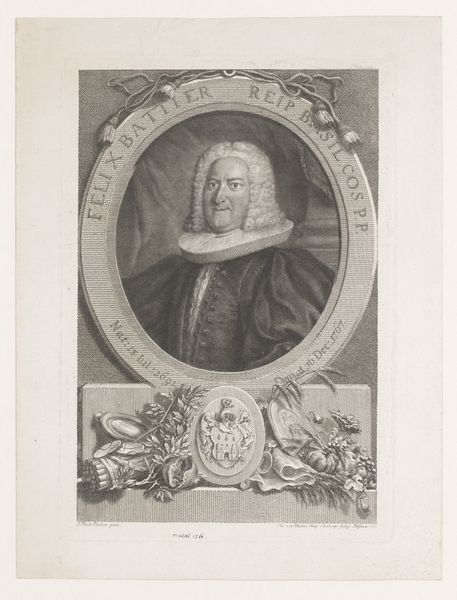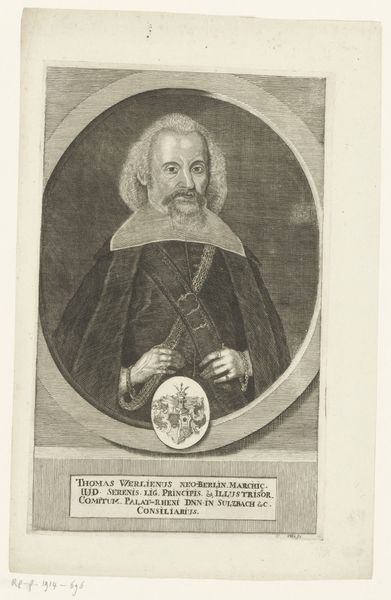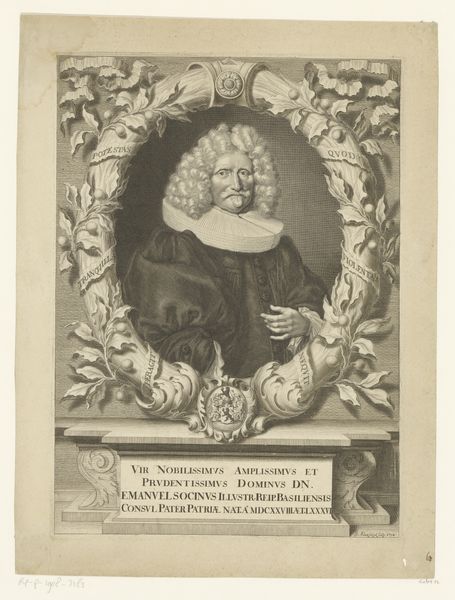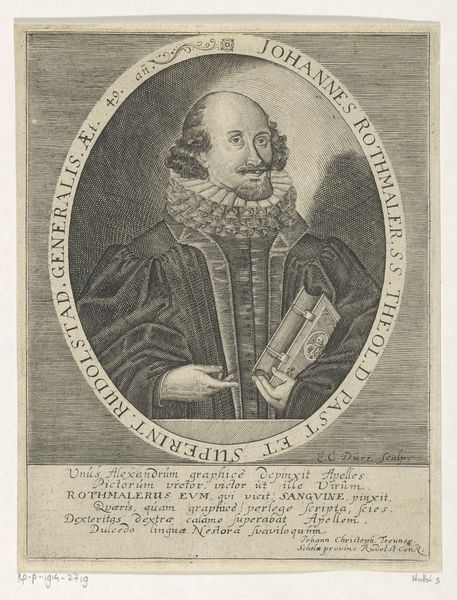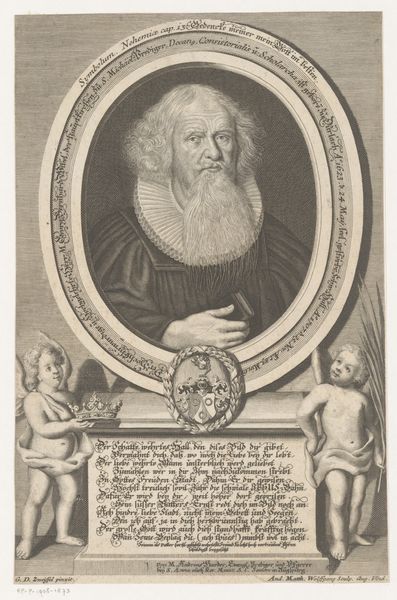
print, engraving
#
portrait
#
baroque
# print
#
line
#
engraving
Dimensions: height 230 mm, width 168 mm
Copyright: Rijks Museum: Open Domain
This print of Kaspar Rebhahn was made in the Dutch Republic by Johann Alexander Böner, likely sometime around the turn of the 18th century. It’s easy to overlook the political and social significance of portraiture, especially in the Dutch Golden Age, where portraiture became accessible to the middle classes, not just the aristocracy. Rebhahn was a Protosynodrastic pastor, as it says in the inscription, so a high ranking ecclesiastic authority. Look at how the artist has presented him: soberly, with the trappings of his faith. He is holding a book that we must assume is a religious text. Böner is not only documenting this man, but also the institutions and beliefs to which he belonged. As historians, we can dig into the archives of the church to understand the position and status of figures like Rebhahn and the role of the church in the civic life of the time. What was the relationship between church and state? How did the church structure social life? These are just some of the questions we can begin to answer.
Comments
No comments
Be the first to comment and join the conversation on the ultimate creative platform.
